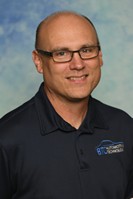Automotive Technology

Automotive Technology - Certificate - General Automotive Repair
Choose this program to prepare for a rewarding career as an automotive service technician or mechanic. Occupational choices are extensive in this specialized field; you could work as an automatic transmission, brake, engine performance, or electrical specialist.
If you’re looking for a program that provides a wide range of high-demand skills you’ll use with employers such as automotive dealerships, auto rental companies, federal and local government repair shops, and fleet maintenance businesses, then check out Automotive at BTC!
Employment Information
Data are provided on a program (not credential) level
81% BTC graduate placement rate1
$62,656 starting annual wage2
$78,031 average annual wage2
$94,881 potential annual wage2
Entry Information
When Can I Start?
This program admits students once a year, in the fall quarter.
Additional Requirements:
Prior to enrolling in program classes, during the mandatory GET Started appointment, students will be required to present and attest the following to the Outreach, Advising, and Counseling Department:
- Present your valid driver's license;
- Attest that you presented a valid driver’s license to your program advisor and that you will notify your program faculty immediately if your driver’s license is suspended OR restricted for any reason.
Important Program Notes:
- While it is not required to have a clean driving record to enter the program, some employers and internship providers in this field may only hire applicants who have a clean driving record;
- All General Education courses must be completed prior to the beginning of the 2nd year of the program.
What are the Minimum Entry Requirements?
A completed college admissions application and placement in English and math. BTC uses a Guided Self-Placement process to help you choose the best starting point for your English and math courses. Your selections will determine whether you begin with program coursework or complete prerequisites classes first.
To get started or for help determining your English and math placement, contact the Outreach department at Outreach@btc.edu.
What are My Next Steps?
Classes
Total Program Credits: 63
Quarter 1
AUTO 100 Introduction to Automotive Technology 8 CR AUTO 102 Introduction to Automotive Technology Lab 4 CR AUTO 113 HVAC 4 CR AENGL 100 Applied English 5 CR or higher Quarter 2
AUTO 150 Engines 6 CR AUTO 151 Electricity/Electronics 2 CR AUTO 152 Engines Lab 8 CR AMATH 100 Applied Occupational Math 5 CR or higher Quarter 3
AUTO 160 Chassis Systems 8 CR AUTO 162 Chassis Systems Lab 8 CR CMST& 210 Interpersonal Communication 5 CR OR PSYC& 100 General Psychology 5 CR OR SOC& 101 Introduction to Sociology 5 CR
Program Outcomes
After successfully completing the General Automotive Repair certificate, students will be able to:
- Comply with personal and environmental safety practices specific to the automotive industry.
- Perform fundamental maintenance and repairs on basic automotive systems.
- Provide critical thinking skills while utilizing technical information to perform various repairs.
- Communicate work performed using trade specific language while documenting critical aspects clearly and concisely.
Employment Outlook
BTC’s General Automotive Repair and Vehicle Service Technician certificates prepare graduates to work in entry-level automotive positions like lubrication, tire, and muffler service positions.
Most program graduates work as automotive service technicians. In larger shops, positions have become increasingly specialized. Opportunities for specialty positions include automatic transmission specialist, brake specialist, engine performance specialist, front end specialist and electrical specialist.
Potential places of employment include automotive dealerships, independent service garages, federal and local government repair shops, rental industry, service stations, specialty shops, tire and service industry, and fleet maintenance.
Faculty & Support

Daniel Beeson
Automotive Technology
Nick Lenn
Automotive TechnologyContacts
If you have questions about this program or want help with the admissions steps to Bellingham Technical College, please email outreach@btc.edu.
Current students wanting academic planning and support, can connect with the program Instructor(s) or email TransportationNav@btc.edu
